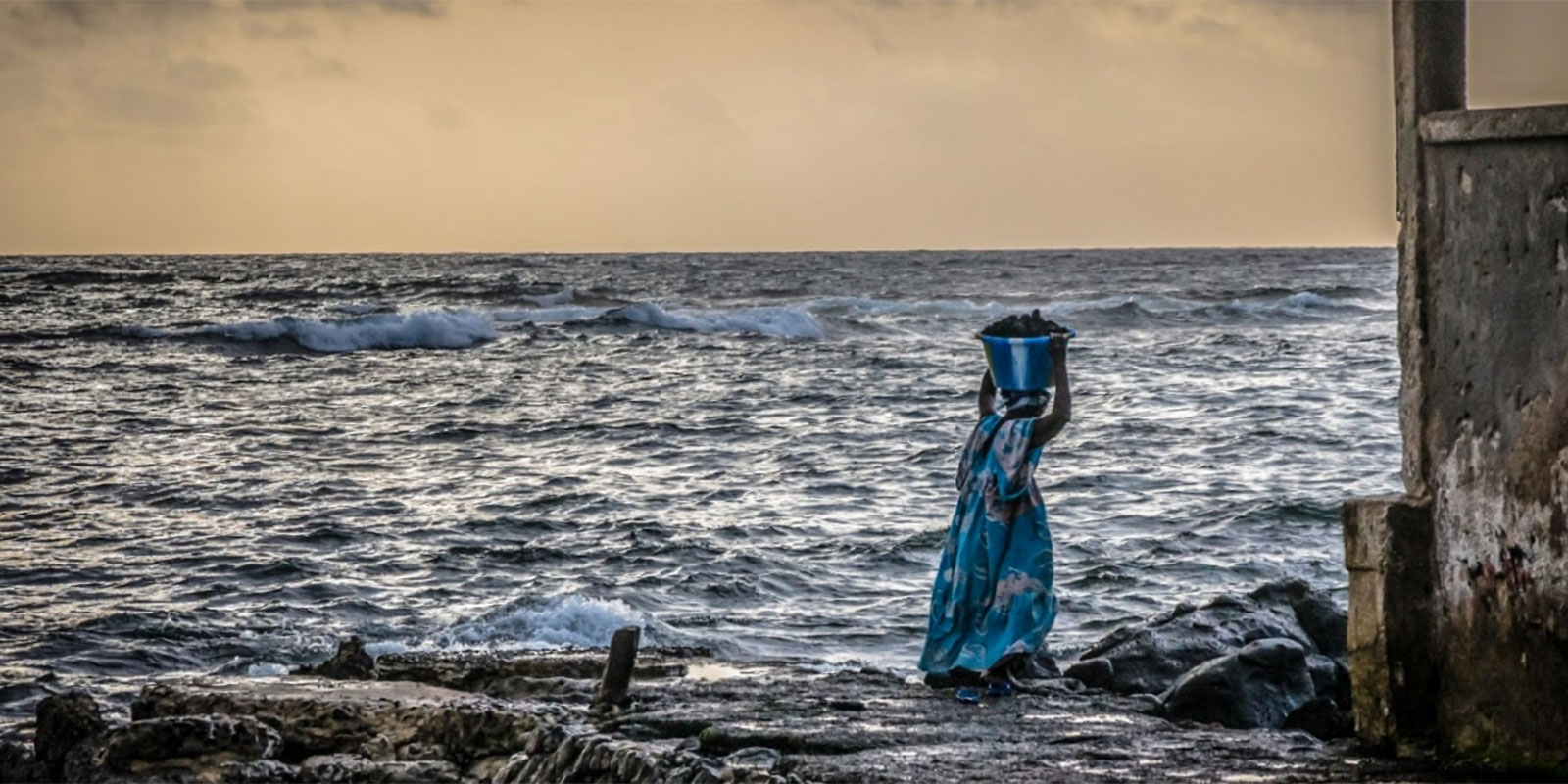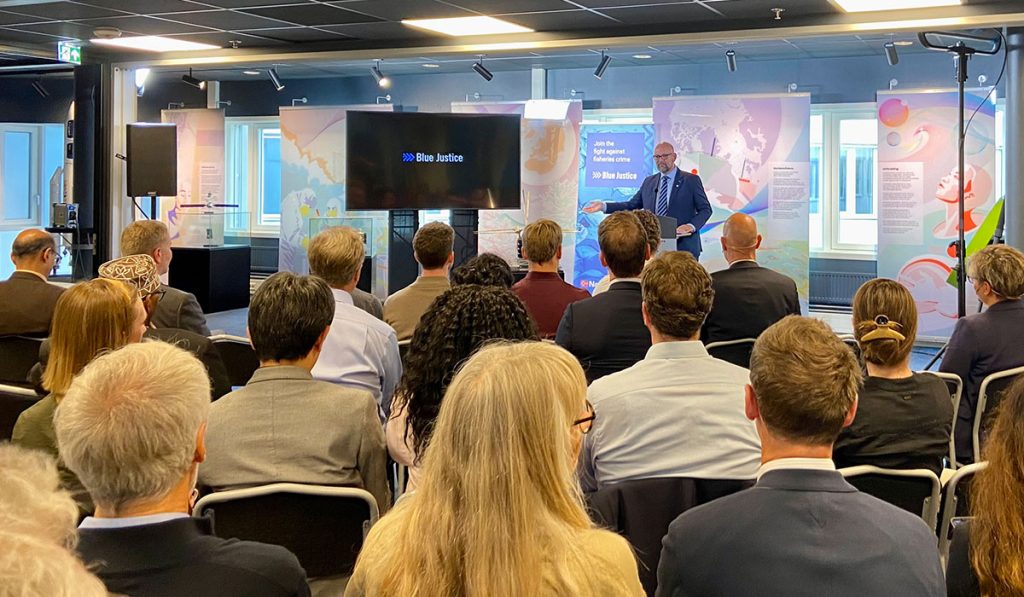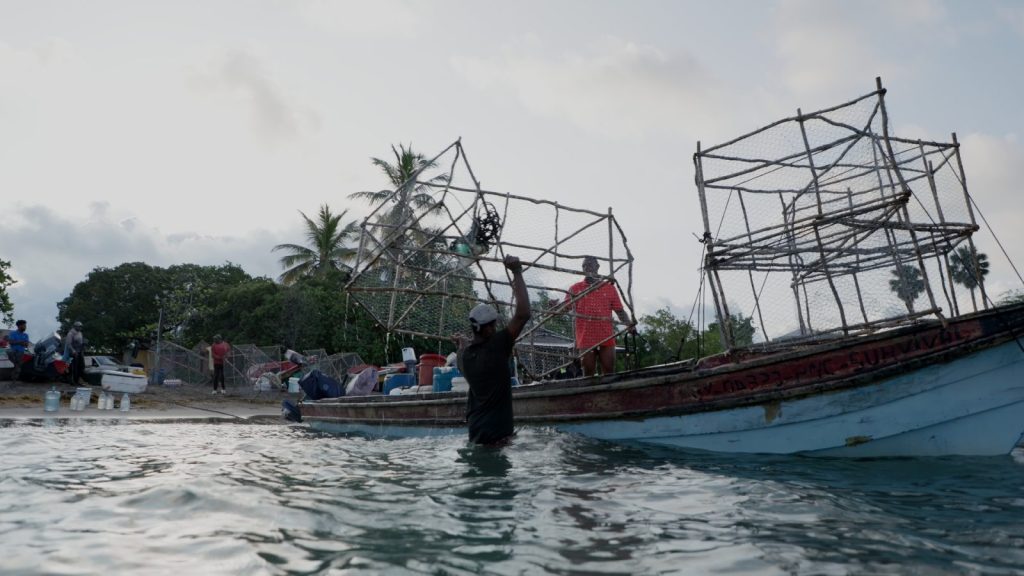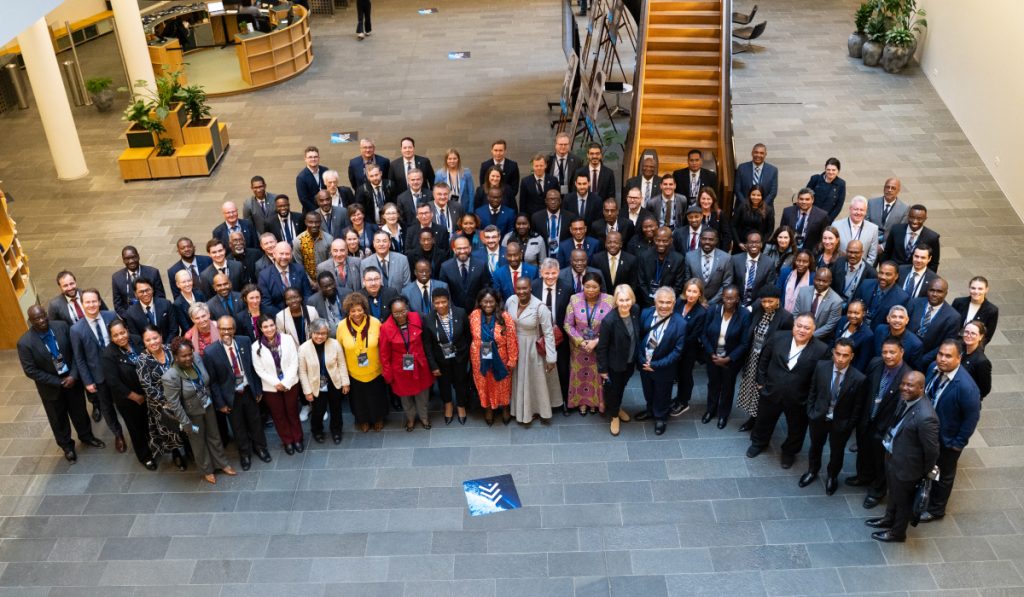The Blue Justice Forum webinar series was launched back in August 2020 by the UNDP Blue Resilience project in conjunction with the Blue Justice Initiative’s Secretariat. The aim was to create a platform where experts and stakeholders from all corners of the world could gather on a weekly basis to learn and discuss issues pertaining to organized crime in the fisheries sector.
Since September 10, we look back on 10 successful webinars, where global experts have shared their knowledge and encouraged fruitful discussions and networking around a range of critical topics. With over 600 attendees across the world, the webinars have reached a broad audience and include representatives from governments, IGOs, academia, NGOs and broader civil society. Participants have represented small island states, large ocean nations and everything in between, streaming the events from a total of 55 different countries:
Australia, Austria, Belgium, Brunei, Canada, Colombia, Costa Rica, Denmark, Fiji, France, Gabon, Germany, Ghana, Greenland, Guyana, Iceland, India, Indonesia, Ireland, Israel, Italy, Jamaica, Japan, Kenya, Madagascar, Maldives, Mauritius, Morocco, Netherlands, Nigeria, Norway, Pakistan, Peru, Philippines, Poland, Portugal, Samoa, Sao Tome and Principe, Senegal, Seychelles, Singapore, South Africa, Spain, Sri Lanka, Suriname, Sweden, Tanzania, Thailand, Togo, Tonga, Trinidad and Tobago, Tunisia, United Arab Emirates, United Kingdom, and the United States.
Find a brief summary of the latest Blue Justice Forum webinars below:
The Copenhagen Declaration (Gunnar Stølsvik – Policy Director of the Norwegian Ministry of Trade, Industry, and Fisheries).
- The Copenhagen Declaration is the most comprehensive international political statement on organized crime in fisheries and provides a framework for describing and cooperatively addressing the global problem as a follow-up to the UNGA resolution of 2008.
- The Norwegian government’s Blue Justice Initiative takes the Declaration from political level to practical level through the vision of “a sustainable and fair blue economy free from fisheries crime.”
Stretching the Fishnet: Addressing Crimes in the Fisheries Value Chain (Jenna Dawson Faber – UNODC’s Global Programme for Combating Wildlife and Forest Crime (GPWLFC), Giovanni Broussard, UNODC Regional Office for Southeast Asia and the Pacific, GPWLFC, and Tim Steele, UNODC Senior Anti-corruption Advisor)
- UNODC has found that IUU intersects with fisheries-related crime in the context of human trafficking (HT) in South East Asia. Recommendations towards addressing HT in the fisheries sector include ratifying relevant international conventions and, at national level, reform of relevant fishery and labour laws.
- UNODC has also released “Rotten Fish”: A guide on addressing corruption in the fisheries sector” to assist Member States to tackle corruption in the fisheries sector.
Maritime Security and Organized Crime: Examples from the Gulf of Guinea (Dr. Kamal Deen-Ali, Executive Director for CEMLAWS Africa, and Giuseppe Sernia, UNODC Global Maritime Crime Programme Officer)
- There has been a discernable rise of maritime security incidents in the Gulf of Guinea in 2020, with the fisheries sector increasingly targeted and experiencing a range of associated organized crime activities, adversely affecting local fishing communities.
- A continuum of institutional cooperation is needed from at-sea law enforcement to relevant agencies on-land to ensure successful follow-through to prosecution.
Smuggling of Goods and Human Smuggling in the Caribbean (Commander Judy-Ann Neil, Commanding Officer at the Directorate of Training and Doctrine, Jamaica Defence Force and Ms. Sarika Maharaj, Interim Coordinator-Fisheries Inspectorate at the Fisheries Division of the Ministry of Agriculture, Land and Fisheries of Trinidad and Tobago).
- A wide variety of cargo is smuggled via the fisheries sector in the Caribbean, including drugs, guns and ammunition, wildlife, domestic animals, fuel and other essentials such as food and pharmaceuticals. The Caribbean islands function as transit countries between source regions (Central America, South America and West Africa) and the major destinations (USA, Europe, Canada and East Asia). These activities adversely affect local communities and government revenue streams.
The Synergies and convergence of IUU Fishing and Transnational Organized Crime (Eve De Coning –Senior Advisor for the Norwegian Ministry of Trade, Industry and Fisheries)
- Under ITLOS Advisory Opinion of April 2, 2015, the flag state is under an obligation to exercise ‘due diligence’ to ensure their legal subjects comply with their laws and regulations. This requires a flag state to put in place a system that requires compliance by its vessels.
- Compliance is best ensured via proactive measures to prevent criminal activity, and, where needed, administrative and criminal law enforcement mechanisms.
Gender and Fisheries Law Enforcement (Lucía Solano Ramírez – Coordinator of the Internal Treaty Working Group of the International Legal Affairs Directorate in Colombia, and Médina Thiam – Deputy Director of the Maritime Safety and Marine Pollution Prevention in the Senegalese Maritime Administration).
- Within the fisheries sector, women are typically found in harvesting, processing, marketing, trading, making up nearly half of the overall fisheries sector workforce. They remain under-represented however, in management and leadership roles.
- There is a lack of research and gender disaggregated data on women’s involvement in fisheries crime as perpetrators and facilitators, as well as their role as victims.
- What is needed is attention to the gendered impacts of fisheries policies and programmes and dedicated laws or policies aimed at enhancing the role of women in fisheries.
Implications on Coastal Communities of Fisheries Crime: Examples from Nigeria and the Gulf of Guinea (Dr. Ifesinachi Okafor-Yarwood – Maritime Governance and Security Expert and the University of St. Andrews, and Dr. Maurice Beseng – Postdoctoral Researcher in Conservation Geopolitics at the University of Oxford).
- Organized crime and depleting fish stocks leave coastal communities vulnerable, experiencing food insecurity and lack of income, which disproportionately affects women.
- Combined with increased securitization and zonation of the seas, coastal residents are forced to seeking alternative ways of generating income which may include illegal activities such as illegal fishing, oil/fuel smuggling or recruitment by criminal networks. Some, and typically women, will resort to sex work in exchange for fish, money or to guarantee credit.
The Role of Secrecy Jurisdictions in Facilitating Organized Crime in Fisheries (Gail Hurley – international development and sustainable finance professional)
- Financial secrecy jurisdictions allow entities and individuals in the fisheries and related natural resource extraction industries to undermine laws, rules and regulations of other jurisdictions, using secrecy as a prime tool. Total anonymity enables fisheries criminals to hide their offences and the widespread use of shell companies make it impossible to trace ownership structures of companies.
- Besides reforming the financial system to prevent it from being part of the problem, efforts to combat financial secrecy can draw upon new technologies, further research and increased financing of SDG 14.
Fisheries Crime in the Containerized Trade Supply Chain (Anne Linn Jensen – Programme Officer for the UNODC-WCO Container Control Programme (CCP), Mr. Edmund Landy Tei – UNODC-CCP Trainer, and Mr. Ivan Kagambo – Police Officer with the Tanzania Port Authority).
- Around the world, there are 793 million twenty-foot equivalent units (TEU) movements each year (2018). Such a high number of container movements provides plenty of opportunities for legal trade, but also many opportunities for transnational criminal networks.
- The CCP was launched by UNODC and the WCO in 2004. The CCP assist governments in establishing and maintaining effective controls over containerized shipping. The fisheries crime component aims at enhancing the knowledge of frontline level officers on deterring fisheries crime in the containerized trade supply chain.
Human Trafficking in Fisheries from the Perspective of the UNCLOS Provision that Bans Slavery – The Case Study of Indonesia (H.E Prof. Dr. Todung Mulya Lubis – Indonesian Ambassador to Norway and Human Rights Lawyer and Dr. Ioannis Chapsos – Assistant Professor and Research Lead in Maritime Security Centre For Trust, Peace & Social Relations, Coventry University)
- Recent human trafficking/modern slavery cases in the Indonesian fishing industry show that victims indebt themselves to receive training, which is later used as a means of pressure and facilitates modern slavey in the form of exploitation of human beings for personal and commercial gain. Testimonies reported physical abuses, psychological abuses, and even killings as a means of control, to scare the trafficked workforce.
- Art 99 UNCLOS prohibits the transport of slaves. It is an important governance provision but must be updated to reflect contemporary challenges in order to be an effective legal instrument in modern slavery cases.
Next up is the Blue Justice Conference 2020, which goes live on 10-11 December, 2020.
The event brings together global leaders tofoster cooperation towards a fair Blue Economy free from fisheries crime.
Join us for the High Level event: https://bluejusticeconference2020.kg5.no/
Sign up for the webinars: https://bluejustice.org/conference2020/



